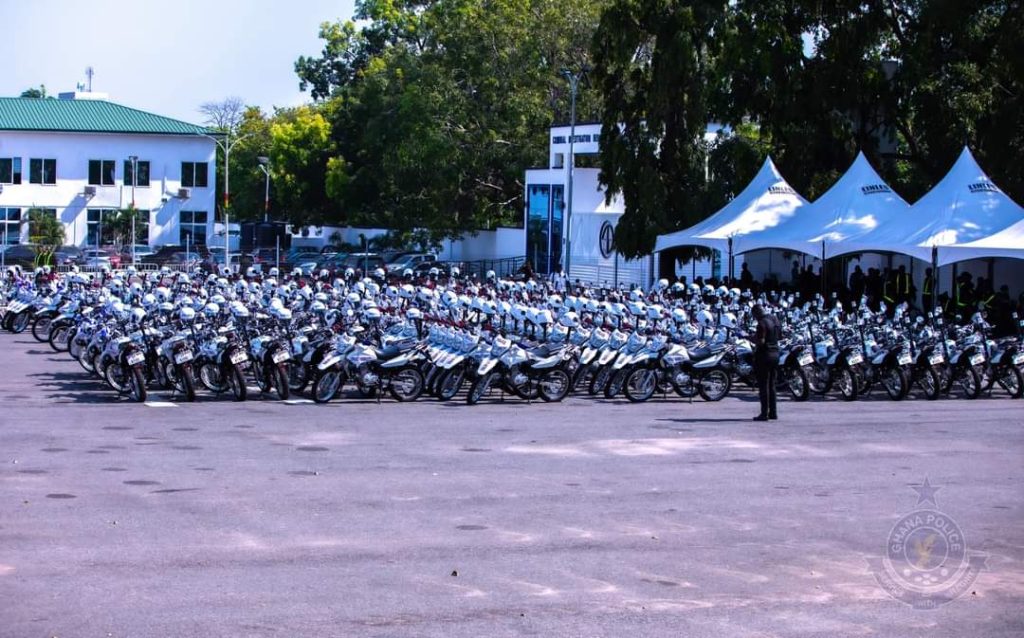The recent actions of the Electricity Company of Ghana (ECG) have sparked a wave of confusion and concern among the public.
The decision to donate 200 Honda motorbikes to the Ghana Police Service, ostensibly to enhance security operations, has raised eyebrows given the company’s precarious financial situation.

ECG, grappling with significant indebtedness and an inability to settle its debts, has left many questioning the company’s priorities and its departure from its core mandate.
The company’s financial woes have been exacerbated by what some perceive as ill-informed procurement decisions, despite continuous injections of billions of dollars from the state to support its operations. ECG’s struggle to collect revenue efficiently has created a ripple effect along the energy value chain, leading to threats of power plant shutdowns.

The recent intervention by the government, involving a US$30 million payment and a promise of an additional $30 million, highlights the fragility of the company’s financial position.
The dependence of ECG on the national budget is a cause for concern, with estimates suggesting an annual requirement exceeding US$2 billion.
Part of the International Monetary Fund (IMF) program is aimed at ensuring the company’s ability to pay its debts, thereby freeing up crucial budgetary resources. However, recent actions by ECG suggest a pattern of recklessness in spending on activities unrelated to its core mandate.
Alarming reports indicate that ECG has not paid state-owned power sector agencies including Ghana Grid Company Limited (GRIDCo) since September, raising questions about the prioritization of financial obligations.

Despite this, bonuses for staff have been disbursed, further fuelling public discontent. Moreover, there are disturbing indications that the company’s officials are diverting resources, potentially turning ECG into a slush fund to support personal business ventures and engage in illicit procurements through sole sourcing.
The levies intended to support the energy value chain have allegedly become a source of political spending, diverting funds away from their intended purpose. Such actions not only jeopardize the financial stability of ECG but also erode public trust in the institution.
As Ghana grapples with economic challenges and strives to meet its obligations under the IMF program, the need for prudent financial management and a recommitment to the core mandate of ECG is more crucial than ever.
Addressing these concerns is not only essential for the stability of the energy sector but also for the broader economic health of the nation. It is imperative that stakeholders, including government officials, address these issues transparently and take corrective measures to ensure the responsible and effective management of ECG’s resources.
Meanwhile, a consumer named D’Great Loh took to the social media platform Face to criticize the donation by ECG to the Police saying “Nothing makes sense in this country. I would have sworn we heard ECG wasn’t profitable and needed to increase tariffs urgently etc etc.
“How are they the ones kitting the police service with tools for their work?
“Next, the police will donate transformers and meters to the ECG, adding the whole thing is brain-numbing. Totally illogical it makes me sick.










Discussion about this post